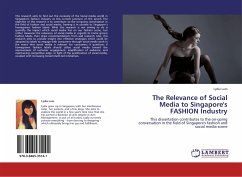In the 1990s, Susan Faludi s Backlash: The Undeclared War Against Women (1992) was arguably of signal importance in the thematization of the limits imposed by the media on the negotiation of gender identity. However, the utilization of Faludi s various analyses, in the interest of rendering social critique, has become progressively more problematic during the first decade of the 21st century. This is because her analyses engage neither with the development of media technologies subsequent to the early 1990s, nor with the way in which such technological developments now engage audiences on a greater multiplicity of levels than before, in a manner that consequently stands to inform their subjectivity to a degree hitherto unimagined. (A good example of the latter would, of course, be the proliferation of interactive exchanges on the World Wide Web). As such, in the light of such technological developments, this book draws on the reception theory of Adorno and Horkheimer, as well as Stuart Hall and investigates the continued relevance of Faludi s Backlash (1992) for the negotiation of gender identity in the contemporary era.
Bitte wählen Sie Ihr Anliegen aus.
Rechnungen
Retourenschein anfordern
Bestellstatus
Storno








